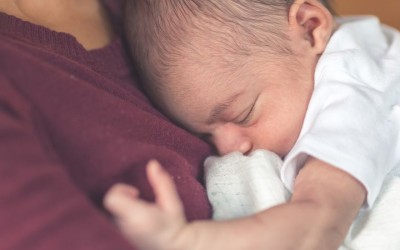
COVID-19 and Preeclampsia
Last Updated on August 15, 2022
Though the Centers for Disease Control and Prevention (CDC) have recently lifted many of the recommended COVID restrictions, COVID-19 infection increases risk of developing life-threatening hypertension in pregnancy and preeclampsia and, overall, worsens pregnancy outcomes for moms. It is important that if you are pregnant, you follow your healthcare provider's recommendations to stay healthy and avoid getting COVID. Prevention is your best weapon. Read on for details about vaccines in pregnancy and how COVID-19 affects pregnancy and vice versa.
Importantly, do not let the fear of contracting COVID-19 virus keep you away from getting the care you need for preeclampsia signs and symptoms. Preeclampsia still requires immediate monitoring and treatment in order to ensure you and your baby's best outcomes. Do not delay reporting symptoms to your healthcare provider.
The following information has been developed by members of the Preeclampsia Foundation Medical Advisory Board, staff, and other credible sources. Check back often for updates.
Coronavirus (COVID-19) information is constantly evolving. Our team continues to do our utmost to keep this page and its information up to date. If you discover outdated information or you have other suggestions for resources that may be useful to our preeclampsia community, please email us.
Research on COVID-19 in pregnancy, and specifically with respect to preeclampsia, has advanced considerably in the last several months.
August 15, 2022 - Pregnancy-related complications, including rates of gestational hypertension and preeclampsia, and deaths after childbirth increased during the first year of the COVID pandemic, according to a recent analysis from a team of Boston-based researchers which looked at pregnancies from March 2020 to April 2021. The findings, which were published in the medical journal JAMA Network Open, reflect the experience of 1.6 million pregnant patients who delivered babies at 463 hospitals across the country.
August 11, 2021 - The Centers for Disease Control and Prevention (CDC) updated its vaccine recommendation on August 11, 2021. COVID-19 vaccination is recommended for all people 12 years and older, including people who are pregnant, breastfeeding, trying to get pregnant now, or might become pregnant in the future. This recommendation is supported by the American College of Obstetricians and Gynecologists and the Society for Maternal Fetal Medicine, and in line with the rest of our COVID update.
What the Research Tells Us
The INTERCOVID study was a large research study completed in October 2020 of 2,130 pregnant women in 18 countries. The study enrolled pregnant women who had and didn’t have COVID and followed them to see how they did, rather than just looking back at an old database. That study found that pregnant individuals with COVID-19 had an almost two-fold higher risk of preeclampsia, as well as other adverse outcomes including maternal mortality, severe infection, and preterm birth compared to pregnant individuals without COVID-19. Specifically, 9 out of 100 women with COVID-19 in pregnancy developed preeclampsia, whereas 5 out of 100 women without COVID-19 developed preeclampsia. Read the full study results.
A July 2021 review of multiple studies found that the odds of developing preeclampsia, particularly severe preeclampsia, eclampsia and HELLP syndrome, were significantly higher among pregnant women with COVID-19 infection than among those without COVID-19 infection. Both asymptomatic and symptomatic COVID-19 infections significantly increased the odds of preeclampsia although it was higher among patients with symptomatic illness.
In addition, several studies have shown that pregnant women who get infected from COVID-19 are at increased risk for more severe effects from COVID-19, such as ICU admission and death, compared to women who are not pregnant. Women with other pre-existing illnesses such as obesity and diabetes, or from disadvantaged populations may be at even higher risk for worse outcomes if they contract the virus.
There is still limited evidence that the virus crosses the placenta to the baby, though there have been some cases where it has. Interestingly, antibodies have been shown to cross the placenta to the unborn baby or through breastmilk to help support the baby’s disease-fighting immune system.

Pregnancy and COVID-19 do not mix well. Research shows that:
- Your risks of developing problems in pregnancy such as preeclampsia are greater if you are infected with COVID-19.
- Your risks of having worse effects from COVID-19 are greater if you are pregnant.
- You should use all measures possible to prevent infection from COVID-19 if you are pregnant or trying to conceive.
- You should review the largest, most informative research studies (like those mentioned above) before deciding what is right for you, your family, and those in your physical proximity.
Discuss the benefits of the vaccine and any concerns with your healthcare provider!
Vaccine Recommendations
COVID-19 Vaccines and Pregnancy
The leading obstetric organizations are recommending vaccination for pregnant, postpartum and lactating people, as well as those considering pregnancy. The American College of Obstetricians and Gynecologist (ACOG) and the Society for Maternal Fetal Medicine (SMFM) have stated that vaccination is the best method to reduce maternal and fetal complications of SARS-CoV-2 infection. Their information for patients can be found here.
Beyond Emergency Use Authorization (EUA), on August 23, 2021, the FDA approved the Pfizer vaccine for individuals 16 years and older. (About the FDA)These vaccines do not use active virus and cannot make you sick with COVID-19. The vaccines teach your immune system to respond to any virus you might get. Teaching your immune system can sometimes give you a fever for a day or so, although it will not make you sick with the virus. Inactive vaccines like this are given frequently during pregnancy and have a solid track record of long-term safety, with no differences appearing between the group of women or babies who are given the vaccine and the group of women or babies who do not receive it over the short or long term, except that those who receive the vaccine are protected from the worst effects of the virus.
Early Concerns versus What the Research Tells Us
Fertility: Despite early concerns voiced on social media that vaccines may affect fertility, scientific studies are now showing that women who were in the COVID-19 vaccine trial groups have gotten pregnant at the same rate as women who were not. A thorough explanation from the American Society for Reproductive Medicine debunks the biological plausibility of the fertility issue.
Blood clotting issues: The risks of blood clots caused by the vaccine are much lower than the risks of blood clots caused by COVID-19. Clotting issues in patients who have experienced COVID-19 is a continuing concern.
Safety for pregnant patients: As of June 14, 2021, 124,597 pregnant people had received the vaccine. The CDC is currently following 5,102 of them. Last week, the New England Journal of Medicine published, for the first time, some results of this CDC cohort. The study found that: no unexpected pregnancy or infant outcomes have been observed related to COVID-19 vaccination during pregnancy. Read more about the risks and benefits of vaccination in pregnancy: one of the best explanations for a lay audience that we’ve found came from here. Another explanation was published in a prominent Canadian medical journal.
You Can Contribute to Research
If you are pregnant and interested in contributing to the growing body of knowledge, especially around the effect of vaccines in pregnancy, consider enrolling in one of these research studies, here or here.
It is our collective voice that reduces isolation for others, raises awareness and improves healthcare practices. Let's raise up our voices so more women know about preeclampsia and HELLP syndrome and less women have adverse outcomes!
Related Articles

Ánimo y cuídate: la preeclampsia puede estar asociada con enfermedades cardíacas y accidentes cerebrovasculares más adelante en la vida Descargue nuestra hoja informativa

Eclampsia is a very serious complication of preeclampsia characterized by one or more seizures during pregnancy or in the postpartum period.

La preeclampsia, en todas sus formas, puede requerir muchos análisis, tanto durante como después del embarazo. ¿Alguna vez se preguntó por qué el proveedor de atención médica le solicita tantos anális...

El embarazo es un momento ideal para familiarizarse con su presión arterial. Aquí encontrará todo lo que necesita saber sobre cómo tomarse la presión arterial en casa.

Melbourne, FL – September 17 , 2024 – The Preeclampsia Foundation, in partnership with the International Society for the Study of Hypertension in Pregnancy (ISSHP) and Society for Ma...

Resultados de varios estudios apoyan la hipótesis de que el estrés causado por un embarazo y parto traumáticos puede en muchas ocasiones anular la habilidad de salir adelante emoc...

Is there a connection between maternal diet and preeclampsia? The PRECISE Network research team and I recently completed an evidence review to compile information on maternal nutritional factors that...

What you’ll learn in this article: Many risk factors contribute to an individual’s chance of getting preeclampsia. These risk factors may be genetic, physical, environmental, and even s...

Question: Progesterone supplementation - first trimester and beyond - can it help the vascular constriction by keeping the smooth muscle relaxed (17HP shots), and is it associated with early supplemen...

